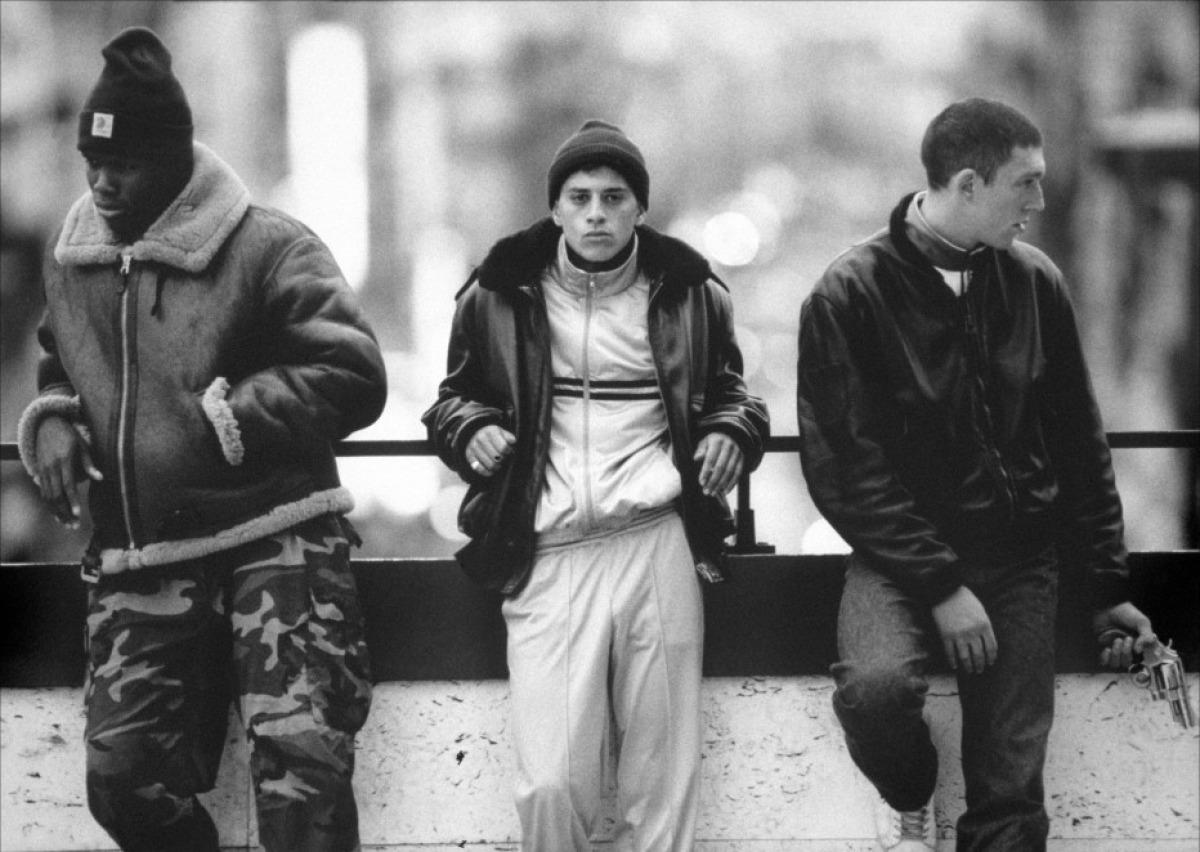
Peterborough film lovers! Trent Film Society is happy to present our final September screening, Mathieu Kassovitz’s 1995 Cannes Best Director Award winning magnum opus: La Haine!
Kassovitz has built his film career around narrowing in on the lives of people on the margins of French society, and no film does he do it better than in La Haine. The film follows a single day in the lives of three young friends—identified as an African, an Arab, and a Jew—on the day after a riot in the multiethnic working class banlieue neighborhoods surrounding Paris proper.
In a country where national identity has been so carefully curated to be sold around the world as the pinnacle of sophistication and elegance, those in the banlieues are rejected and quarantined because they do not fit into the French ideal; their speech is too rough, their clothing too cheap, and their references too American.
Kassovitz masterfully deconstructs this French identity through a variety of methods. The three main characters — Hubert, Sayid, and Vinz — essentially spend a day wandering around their neighborhood and have a brief sojourn in Paris.
In many ways, the day they have could be one of many days in lives defined by a lack of a reliable job, substantial prospects, a hope for financial independence, or really any semblance of self-determination. They’re consistently targeted and vilified by police by virtue of their race, class, and age, all of which signify them as inherently troublemakers. Beyond the police, we see the media as well as people within the banlieues reinforce this characterization, always in contrast with acting “French.”
Perhaps more interesting than the narrative is the cinematography. Kassovitz contrasts the banlieues and Paris through his use of the camera. When we are in the banlieues, Kassovitz favours shots that are wide, open and carefully curated. The position of the characters is balanced, and the background is in focus and essential to the shots, creating a sense of comfort through the completeness of the image.
The trend tends to only break when police invade the banlieues, swarming in and creating a claustrophobic wall of movement and sound that suffocates the screen to fill us with anxiety and tension.
It is this tight, fractured, and too intimate for comfort cinematography that defines their time in Paris. We feel as they do, on edge, incredibly vulnerable, and for no substantive reason. Vinz, Sayid, and Hubert are good kids and are not doing anything wrong by leaving the banlieues and being in Paris. But through the camera Kassovitz screams to us that society has deemed them unworthy to be in the sanctified capital of Paris, their very presence there is a transgression.
Cinematography also plays an interesting role when we slot this film into the history of French cinema. The French New Wave movement of the late 1950s and early 1960s is one of the most influential film movements in the history of cinema. At its peak, it defined not only the French cinematic landscape but the international scene as well, and it was fundamental in building the popular conception of modern France and the French identity.
At a surface glance, one could see La Haine as being aesthetically derived from the New Wave. However, when we look at how he uses the camera, Kassovitz tends to draw significantly more from American cinema than from French. The heavily curated wide shots he uses look like something ripped from the eye of Stanley Kubrick, and there are very intentional uses of signature Spike Lee techniques like the rapidly accelerating tracking shot into a close-up. A direct homage to Taxi Driver is made with Vinz strutting in front of a mirror interrogating his reflection with the iconic “You talking to me?”
The use of American film trends solidifies the rejection of the boys by French society. Their cultural landscape is defined by America because France refuses them, so they refuse France, and even the camera becomes an American in this filmic masterpiece.
Please join the Trent Film Society for a free screening of La Haine on Wednesday September 26 at Sadlier House at 8:30 p.m.
